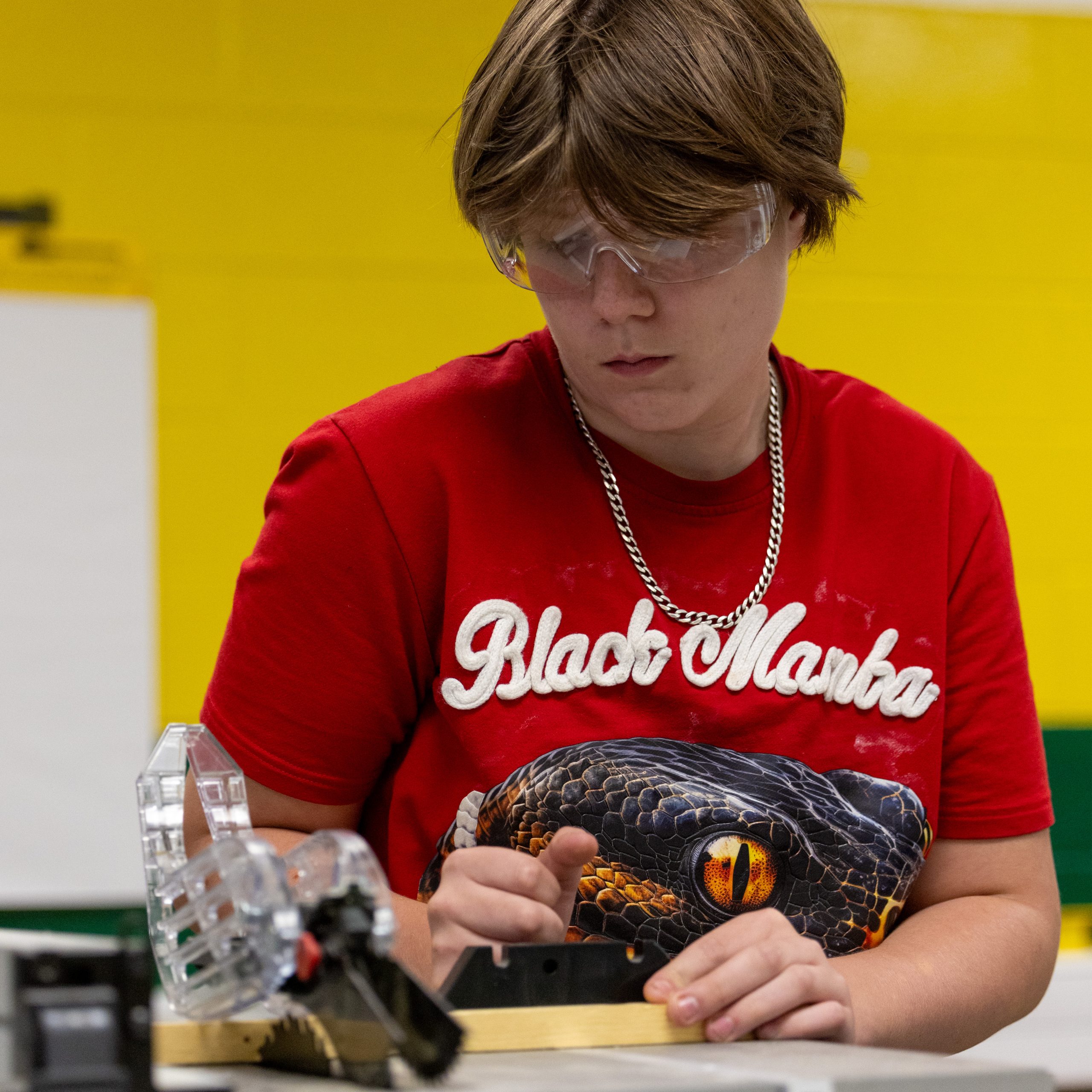CTE
Richmond Senior Teachers Lead the Way in Work-Based Learning

Inside classrooms and labs at Richmond Senior High School, teaching has taken a hands-on turn. From graphic design and healthcare to carpentry and automotive technology, Career and Technical Education (CTE) teachers are connecting academics to the real world through work-based learning.
Richmond County Schools’ CTE Director, Wendy Wallace, said that CTE teachers play an essential role in helping students bridge the gap between classroom lessons and career readiness.
“CTE teachers design lessons that directly relate to industries like healthcare, technology, manufacturing, business, and skilled trades,” Wallace said. “This makes learning more meaningful for students and helps them see a clear pathway from school to employment.”
The district’s work-based learning model emphasizes hands-on learning, rather than just discussion. Students use industry-standard tools, software, and processes to build technical and professional skills that employers value immediately upon graduation.
“CTE classes focus on doing — using equipment, technology, and real-life processes,” Wallace said. “Students gain technical and professional competencies that employers value immediately upon graduation.”
Wallace said collaboration with local industry and higher education partners ensures that CTE programs remain relevant. Teachers at Richmond Senior often work with Richmond Community College and area employers to align coursework with current labor market needs.
“CTE teachers often collaborate with local businesses, industry partners, and community colleges to ensure that what they teach reflects current labor market demands,” Wallace said. “This alignment helps students develop skills that are in high demand, improving their employability.”
Beyond the classroom, CTE teachers and staff coordinate internships, apprenticeships, job shadowing opportunities, and industry certification exams. These experiences give students authentic exposure to professional environments and expectations.
Wallace added that while technical expertise is essential, soft skills remain a critical focus in every CTE pathway.
“Beyond technical skills, CTE teachers emphasize communication, teamwork, problem-solving, time management, and professionalism — all critical for long-term career success,” she said.
At Richmond Senior, these principles are put into action every day. From digital design labs to construction sites, students are gaining confidence and competence that prepare them for college, careers, and beyond.
Carpentry teacher Tim Hawks said the most rewarding part of teaching CTE is watching students learn a trade that can change their lives.
“I love giving students a skill they can apply the moment they leave high school,” Hawks said. “Whether they go straight into the workforce or pursue higher education, they have a foundation that can lead to a real job and a future they can build on.”
Automotive technology teacher Jeff James said he takes pride in watching his students move from the classroom into the community’s workforce. Inside his shop, photos of former students working at car dealerships and repair centers line the walls — a visual reminder of success.
“I want my students to see what’s possible,” James said. “When they see those pictures, they realize they can do the same thing — build a career, support their families, and keep this much-needed trade alive after graduation.”
As Wallace put it, CTE teachers are “shaping the workforce of tomorrow — one project, one partnership, and one student at a time.”
“I love giving students a skill they can apply the moment they leave high school”










